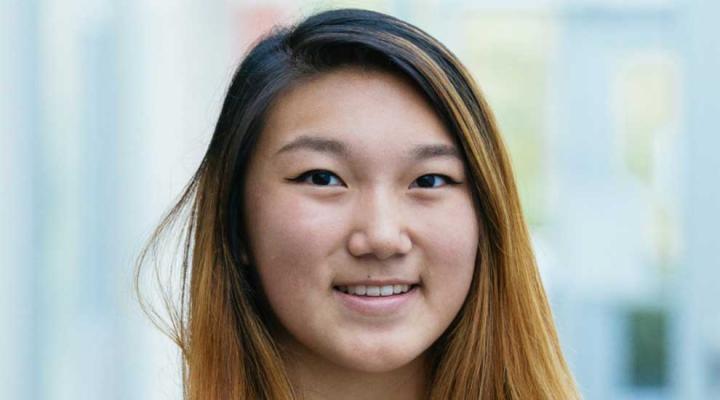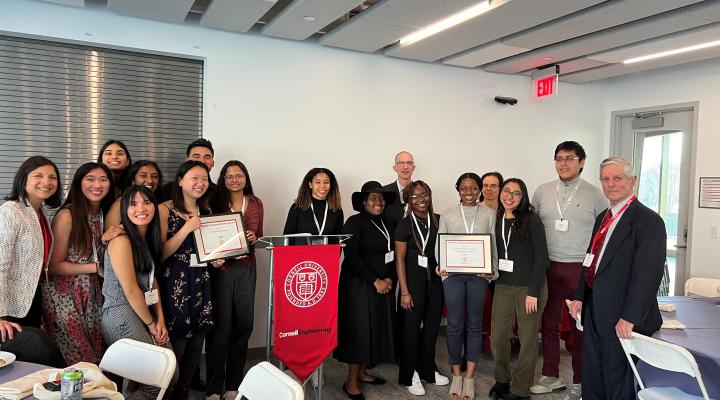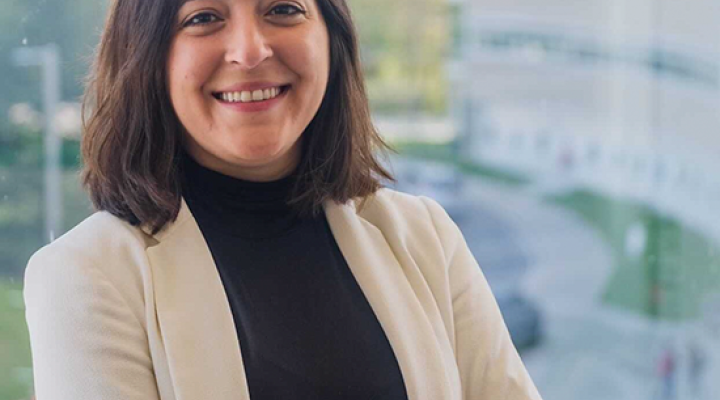Transferring to Cornell was a big decision for David Hartino, his wife Alisa, and daughter Arabella.
"Once I actually managed to get accepted here, then we had to cool our heels and think if it was possible, and it was pretty much decided that this was a second chance of a lifetime," says the 41-year-old junior. "It's a challenge, without a doubt. But I think that transfer students, even older transfer students, can succeed here. I'm proving that you can."
After a brief stint in college in the 1980's, Hartino went into construction, working his way up from unskilled laborer to site superintendent. "But at age 35 I had topped out in that market," says the Rochester native. "I had outgrown the industry because I knew I needed to do more, so I went back to school."
Never a good student in the past, Hartino just hoped to do well enough to transfer to any four-year institution, but he found that with maturity came better grades. So much better that a friend in the Pathway to Success program encouraged him to apply to Cornell. "I would never have tried to apply to someplace like this," he says. "He was an inspiration that allowed me to give it a try."
Funded by a $810,800 grant from the Jack Kent Cooke Foundation, Pathway to Success actively seeks out and provides advising and financial support to transfers from Morrisville State College and Monroe Community College, where Hartino was enrolled.
Hartino considers Pathway's support crucial and promotes it in campus visits and student panel discussions for guidance counselors. "We make no bones about what it's like here. If you think this is going to be easy or you expect to stay on top by doing what you've done, you won't," he says. "It is intimidating, but you can do it, but you can't do it alone. This place is not just for 18-year-old valedictorians."
It's a lot of work, but Hartino says being a Cornell student comes with amazing opportunities, like working for SciCentr, where he creates virtual worlds in which high school students from underserved communities collaborate to solve real world engineering problems, like replacing the blanket insulation in NASA's Hubble space telescope.
"There is no limit to what you can do here, at all, as an undergrad," says Hartino. "The professors are involved here to an extent that I never thought I'd see."
Succeeding at Cornell takes total commitment, says Hartino, and he couldn't do it without the support of his family, which gets a lot less "Daddy time" now. But he thinks the return on their investment will be worth it.
"It's not about graduating, getting a job and lining your pockets. It's about education and how you're going to change the world," he says. "The entire culture, the students, the faculty, the university at large is so encouraging of community service and societal consciousness that you can't help but get caught up in it and that's a good thing; that's a very good thing."






